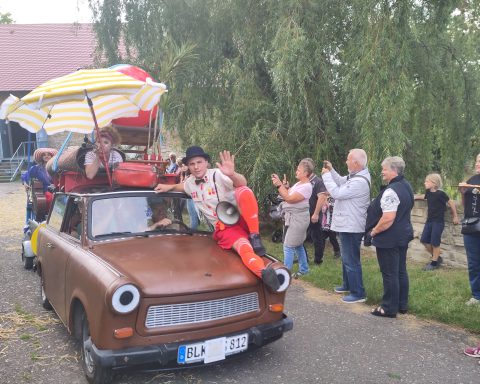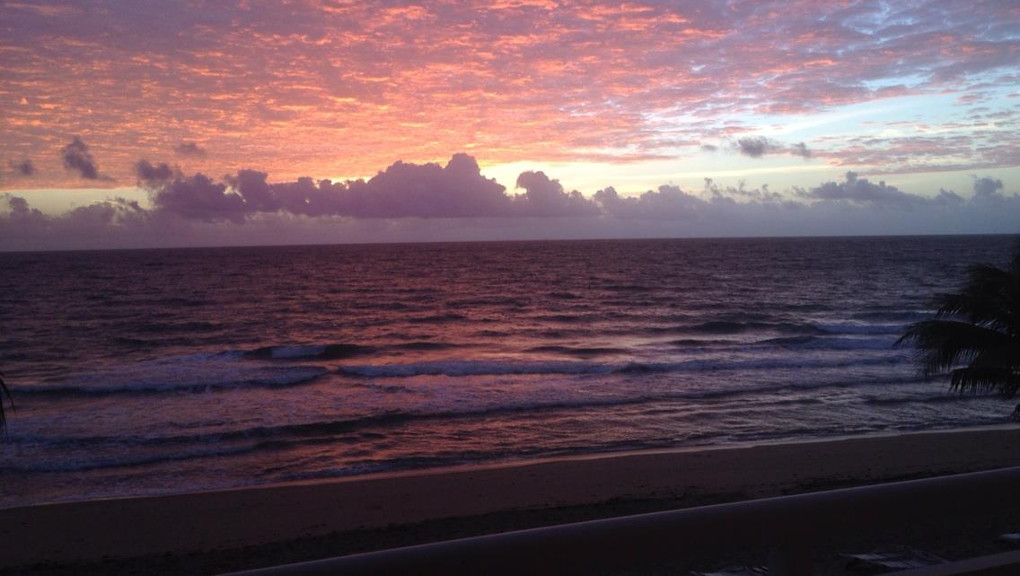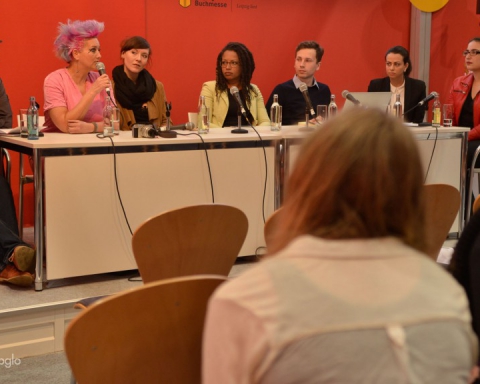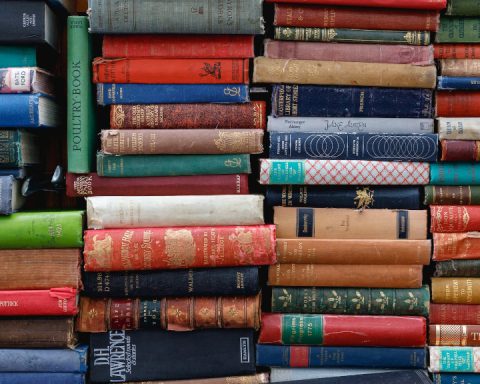Is it possible for someone to study all modern literature and explain the concepts of sacred and profane in the writings of Ibsen, Beckett, Joyce, Mallarmé, Mann and Eliot? And to be an expert in the work of Samuel Beckett, analyzing not only his plays but also his novels? And finally, to deeply and seriously look into theories of how human consciousness works?
The answer is yes.

This impressive mix is the work of Eugene Webb. He is Professor Emeritus at the University of Washington, and has a Ph.D in Comparative Literature from Columbia University.
Here’s my interview with him, and a brief journey into his great and beautiful body of work.
In your book The Dark Dove: The Sacred and Secular in Modern Literature, how do the sacred and the secular intertwine in modern literature and what are the movements of the sacred pointed out in the works of Ibsen, Beckett, Joyce, Mann and Eliot?
When I conceived that book, I thought of exploring three different ways that writers might relate to the sense of the sacred. I put Ibsen and Beckett in the group of atheist writers, who I tried to show denied conventional religious ideas but nevertheless seemed to give expression to some sense of the sacred. Mann and Joyce went with Yeats and Rilke into the group that seemed to me to express something more like a pantheistic vision, and Eliot and Auden I chose as examples of writers who found a way to revitalize the traditional imagery of theistic religion.
To me, one of the most important things about that exploration through atheism, pantheism, and theism, was that in all three cases, there seemed to be a reaching beyond conventional ideas of what one usually associates with those patterns of thought. This becomes particularly clear, I think, in the final chapter, on Auden, where we see him interpreting Jesus as a figure who undermines all our conventional ways of thinking about the sacred and discloses a quite different vision, so that at the end what Auden presents as the true sacred looks like the opposite of what we ordinarily expect it to be.

You wrote two books about Beckett (The Plays of Samuel Beckett and Samuel Beckett: A Study of His Novels). What is the importance of Beckett to world literature?
I think Beckett is one of the figures who will endure in world literature for certain special qualities that he exemplifies almost uniquely: the combination of the poetic beauty of his language with the extreme compression he strove for in form. In this respect, he reminds me of the poet Stéphane Mallarmé, and of Japanese haiku and the Buddhist tradition it gives expression to.
Also the particular vision Beckett developed harmonizes with the lean, spare quality of his form. One of the reasons I find his vision of life so interesting myself is that its bleakness has a purifying effect. His atheistic vision is not cynical at all. It offers a cleansing critique, I think, of naive and self-serving ways of thinking about conventional religious ideas, but it also is imbued with what I think is a deep compassion for the longing of his characters for some form of transcendence.
And, as I suggested in my chapter in The Dark Dove that compared him with Nietzsche, Ibsen, and Wallace Stevens, I think that his atheistic vision, rather like that one can see in Buddhism, hints at the possibility of another kind of transcendence that recalls the mystical and apophatic strains in lesser known (at least in Western Christianity) figures like Maximus the Confessor and Gregory Palamas and also his own Irish forebear, Eriugena.

Art and literature can reveal humans’ deepest personality. How do your favorite artists and writers show the mystery of human nature?
What I look for myself in the writers I most admire and enjoy is insight into the ways human beings can experience a sense of being drawn or pulled toward something beyond themselves, and how their response to that can raise them to becoming something more than they were or perhaps than they could even have imagined. This can take various forms. One could be the challenge of facing an unwelcome truth, for example, and after struggling against it, finally opening oneself to it. (A concrete example, might be Saul Bellow’s character Henderson the rain king, who at a point of realization, says, “So what if reality is terrible, it’s better than what we’ve got.”)
Another could be moral self-transcendence, as when a character pursuing some good for personal gain might come to love the good for its own sake and even become willing to sacrifice his or her own advantage for the sake of what is truly good.

You have written a really interesting book about Eric Voegelin (Eric Voegelin: Philosopher of History). You have had personal contact with Voegelin. Could you comment about his person and your opinion about what his greatest legacy to the history of philosophy was?
It was a great privilege to me to have the relationship with Voegelin that I did. I first met him in the winter of 1976 when he came to the University of Washington to give two public lectures and to meet with some faculty groups from various departments. I had not yet read a great deal of his work, just Israel and Revelation and two of his essays, “Reason: the Classic Experience” and “Immortality: Experience and Symbol.”
When we met, we found that we had both been exploring common ground and intuitively understood each other. He was so pleased with the way I was able to explain his thought to others (who were having difficulty understanding his own explanations), that after the visit was over he recommended me as the person to make a presentation on his religious thinking at a symposium that was being organized on the full scope of his thought. After reading all of his writings to prepare that talk, I felt I had done as much research as I normally would do for a book, so I considered writing a book on his thought, which he encouraged me to do.
This was the first book on Voegelin, and it has since been followed by many others, as I hoped it would be. While I was writing it, we met many times at his home on the campus of Stanford University, and we had a great deal of correspondence as well as phone conversations. What he and I shared was a focus on the experiential heart of thinking. One of his main interests was the way symbolism could either express genuine experiential insight (in what he called a “primary symbolism”), or else lose touch with philosophical and spiritual experience and thereby devolve into what he called a “secondary symbolism.”
In my own [more recent] book on the divergence of the Eastern and Western Christian traditions, In Search of the Triune God: The Christian Paths of East and West, one of my main themes is the way, for most modern Christians, the original experiential meaning of the symbolism of the Triune God has been lost. And in that connection I discuss Voegelin’s ideas at some length in that book.
In Philosophers of Consciousness: Polanyi, Lonergan, Voegelin, Ricoeur, Girard, Kierkegaard, you present a number of philosophers, each with his contribution. In simplifying for the benefit of the general public: What are the basic contributions of each one for a more comprehensive or integral theory of consciousness?
I began that book with Polanyi because as a philosopher and scientist who reflected on inquiry as such and on the nature of inquiring consciousness, he sketched out a range of interesting issues involving both knowing and consciousness: In particular, his discussion of tacit knowing and his distinction between focal and subsidiary awareness. I also appreciated the way he connected thought with feeling in his discussion of what he called personal knowing. I thought he helped to open up a larger picture of what mind and thinking are than I had encountered in my own formal study of philosophy when I received my first degree in that field. But at the same time, he raised questions that seemed to call for deeper analysis.
For that purpose, I then went on to show how Bernard Lonergan helps to unfold the implications of what Polanyi opens up by making the cognitive processes involved fully explicit in his cognitional theory as a hierarchically integrated sequence of operations (this is a topic I later explored in still greater depth in connection with developmental psychology in my 2009 book, Worldview and Mind: Religious Thought and Psychological Development).
In my idea of the overall structure of the book, I conceived it as an exploration that would begin with intellectual questions but would proceed to probe deeper and deeper into the spiritual depths of the mind. Following Polanyi and Lonergan with Voegelin made the spiritual dimension more explicit, and also introduced the perspective of the social and historical dimensions of consciousness.
Paul Ricoeur supplemented that with his own explorations of metaphor and the symbolism of evil. But to really probe the question of evil deeply, I turned to René Girard, who seemed to me to offer a needed supplement to the focus on consciousness in all of the others by exploring the unconscious depths of thinking and the role violence and the lust for power can play if their mechanisms are allowed to remain hidden in those depths.
After studying those five thinkers, it seemed to me that one could then begin to appreciate the real spiritual as well as intellectual depth with which Kierkegaard plumbed the human soul, and the ability he had to show the way the symbolism of the Christian faith could be raised to new life from the kind of torpor it has tended to fall into as a result of its degeneration into dead metaphor and into what Voegelin called secondary symbolism.
You say in Philosophers of Consciousness that you left some thinkers out. Now that years have passed since its publication, would you add some new thinker to this list who you have discovered on your study journey?
Martin Heidegger was the most pertinent thinker I had in mind as being left out, but he was not a new, later discovery. I left him out simply because I considered him to have been adequately discussed by other scholars. At the time I wrote the book, most of the other thinkers I focused on had not been widely written about, with the exception of Kierkegaard, whose spiritual depth I think had not been well understood even though many had written about him. In that case, I thought I had something new to offer about a well known figure while introducing my readers to others who were not as well known but who I thought had a great deal to offer on the ways the intellectual and spiritual aspects of human consciousness were intertwined.

In your view, what is the role of religion in culture and society?
Religion plays multiple roles in culture and society – both for good and for ill. I think that any religious person needs to recognize that religion can have harmful effects as well as good ones. I have friends who not only have no use for religion but wish it would simply go away; but I think that wish is just as naive as the belief of some religious people that religion is an unequivocal force for good.
My friends who see no value in religion actually share my values (which is why we are friends) despite the fact that they can’t see the value I see in religion. One of the main areas of value we share is our concern for the global environment and the dangers that our reckless exploitation of both our fellow humans and the natural world pose for future generations. My non-religious and anti-religious friends would like to see mankind as a whole share their concern and change their lives accordingly, but I think that could not possibly happen without the kind of motivating power only a religion can really have as a social and cultural force. At its best, religion can appeal to the heart as well as the head and can elicit and raise into consciousness the spiritual pull of self-transcending love.
But one must face the fact that religion can also be subverted by egoistic self-seeking and the lust for power (a historical reality that my new book on Christianity goes into in detail); and when belief as such becomes interpreted, as it so easily is, in ways that discourage rational reflection and the development of mature minds, it can become destructive. I think that any honest and sincere believer has to recognize these dangers and fight them, both within himself or herself and in the institutional forms that religion must take on to be socially effective. One of the things that impresses me about Pope Francis is that he seems to have a clear understanding of these issues and a willingness to confront them.

With your experience as a scholar and as a human being, how do you see the paths that we are taking in this world that are shaping the phenomenon of globalization, new technologies of communication and the urgent demands of ethics in the advances of biotechnology?
Beneath the waves of change that continually shape and disturb the history we live in, I think there is a deep, persistent undercurrent of tension between the temptations and comforts of compact consciousness and the intellectual, moral, and spiritual demands of differentiated consciousness. By compact consciousness, I mean the kind of mentality that assumes reality can be easily grasped without a need for careful interpretation and that the best way to avoid the potential confusion that interpretation might stir up is to follow the leading voices of whatever crowd one is pulled along by. By differentiated consciousness, I mean thinking that is aware that whatever one believes involves interpretation and that interpretation should involve operations that attend carefully to experience and to multiple possibilities of interpretation before making a judgment of truth or a decision about responsible action.
The challenges posed to each of us by the exigencies of differentiating consciousness have been with humanity in every moment of recorded history. But there is a sense in which globalization and the new technologies of communication that you refer to are accelerating the pace of change and rendering these challenges more urgent than ever. Mass media give greater gravitational mass and seductive power to the mass mind and its compact consciousness, but greater availability of informational resources also can make possible more attentive, interpretive intelligence.
Ultimately, it comes down to the moral and spiritual efforts of the responsible individual – guided perhaps by what one hopes might be trustworthy cultural and religious institutions – to make the decisions that will form the world we really want to live in and the persons we want to be. I think the important task of intellectuals in our world is to help to articulate these issues so that we can become aware of the challenges and opportunities they pose for us.










